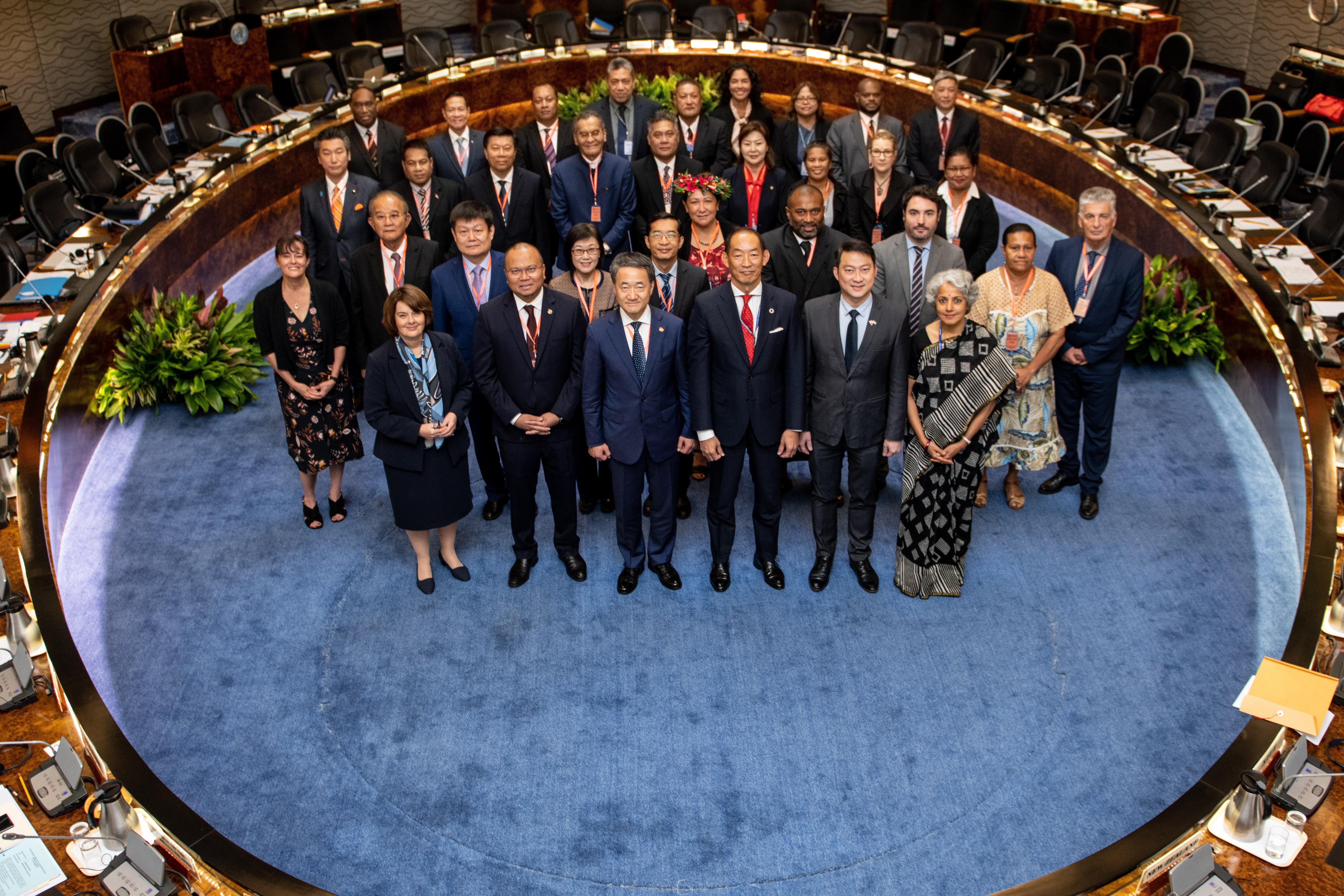
Health ministers and senior officials representing 37 countries and areas across Asia and the Pacific are in Manila, Philippines, this week to agree on priorities for the work of the World Health Organization (WHO) in the Western Pacific Region.
This is the seventieth session of the WHO Regional Committee for the Western Pacific – the first under the leadership of Regional Director Dr Takeshi Kasai, who started a five-year term on 1 February 2019.
This week, delegates will discuss For the Future: Towards the Healthiest and Safest Region – a policy paper developed by Dr Kasai and his team, in extensive consultations with Member States, partners and WHO staff, to respond to current and future health challenges in the Region.
“Some of the challenges we face are significant—but they are not insurmountable. I truly believe that by embracing new possibilities, and acting today to address the problems of tomorrow, we can turn challenges into shared opportunities,” said Dr Kasai in his address to the Regional Committee. “I look forward to working with all of you, to make the Western Pacific the healthiest and safest Region in the world.”
Later this week, delegates will also consider adopting decisions or resolutions on:
- protecting children from the harmful impact of food marketing
- action to fight antimicrobial resistance
- tobacco control
- promoting well-being into older age.
In addition, the Regional Committee will discuss progress in a number of regional programmes, including health security, noncommunicable diseases and mental health, and climate change. The Regional Committee will also gauge progress on efforts towards the elimination of measles and rubella, combating HIV, viral hepatitis and sexually transmitted infections, ending tuberculosis and reducing newborn deaths in the Region.
In his address to the Regional Committee, delivered live via video, WHO Director-General Dr Tedros Adhanom Ghebreyesus, said “Your region is incredibly diverse, and so is the range of challenges you face. WHO is committed – and I am personally committed – to working with each country, rich and poor, small and large, to promote health, keep your people safe, and serve the vulnerable. Every country matters, because every person matters.”
Dr Park Neunghoo, Minister of Health and Welfare of the Republic of Korea, was elected Chair of this year’s session of the Regional Committee. “I thank the outgoing Chairperson Sir Puka Temu, Vice-Chairperson Dr Lam Pin Min and other officers of the last session,” said Dr Park. “I will do my best to follow their excellent leadership and manage our programme well.”
Notes to editors
A livestream of the Regional Committee proceedings, official documents, fact sheets and videos on the issues to be discussed can be accessed here: www.who.int/westernpacific/about/governance/regional-committee/seventieth-session
Updates will be posted on the @WHOWPRO Facebook, Twitter and YouTube accounts with the hashtag #RCM70.
Working with 194 Member States across six regions, WHO is the United Nations specialized agency responsible for public health. Each WHO region has its own regional committee—a regional governing body composed of ministers of health and senior officials from Member States. Each regional committee meets annually.
There are 37 countries and areas in the WHO Western Pacific Region: Australia, Brunei Darussalam, Cambodia, China, Cook Islands, Fiji, France (which has responsibility for French Polynesia, New Caledonia, and Wallis and Futuna), Hong Kong SAR (China), Japan, Kiribati, the Lao People’s Democratic Republic, Macao SAR (China), Malaysia, the Marshall Islands, Micronesia (Federated States of), Mongolia, Nauru, New Zealand, Niue, Palau, Papua New Guinea, the Philippines, the Republic of Korea, Samoa, Singapore, Solomon Islands, Tokelau, Tonga, Tuvalu, the United Kingdom of Great Britain and Northern Ireland (which has responsibility for Pitcairn Islands), the United States of America (which has responsibility for American Samoa, the Commonwealth of the Northern Mariana Islands, and Guam), Vanuatu, and Viet Nam.

/59748.tmb-300v.png?sfvrsn=9885965b_2)


